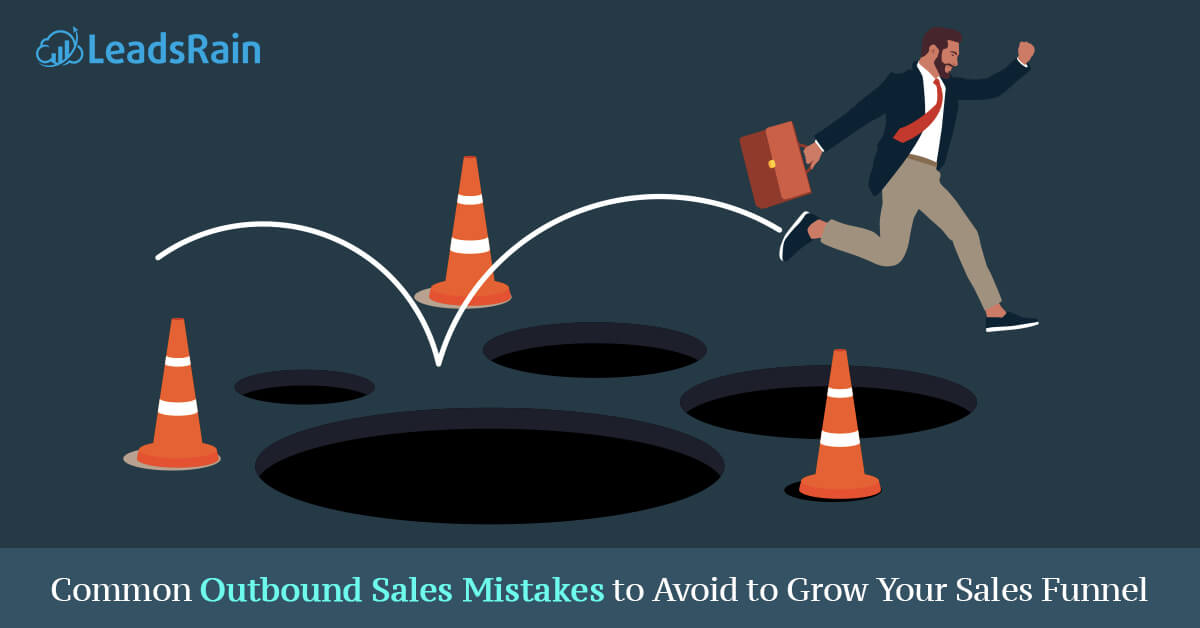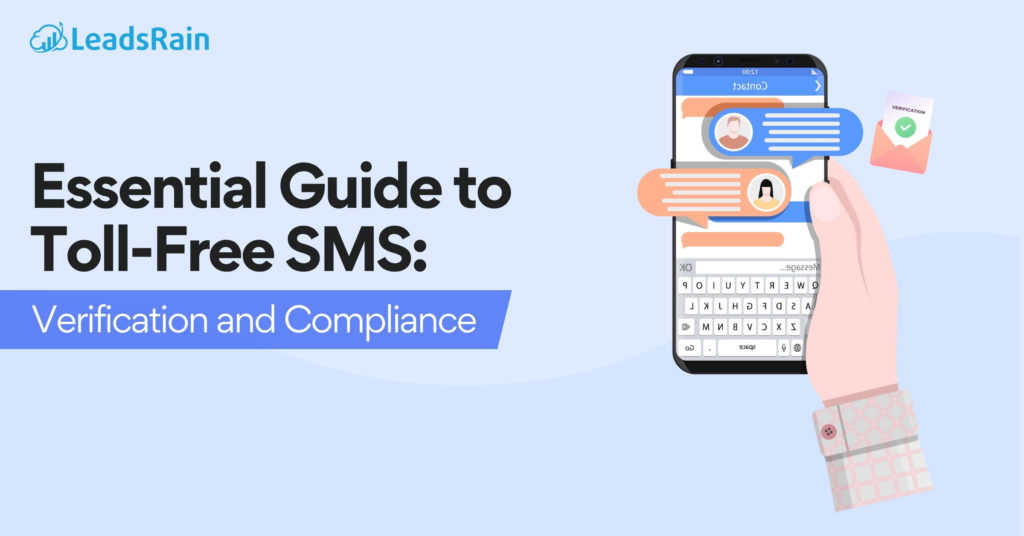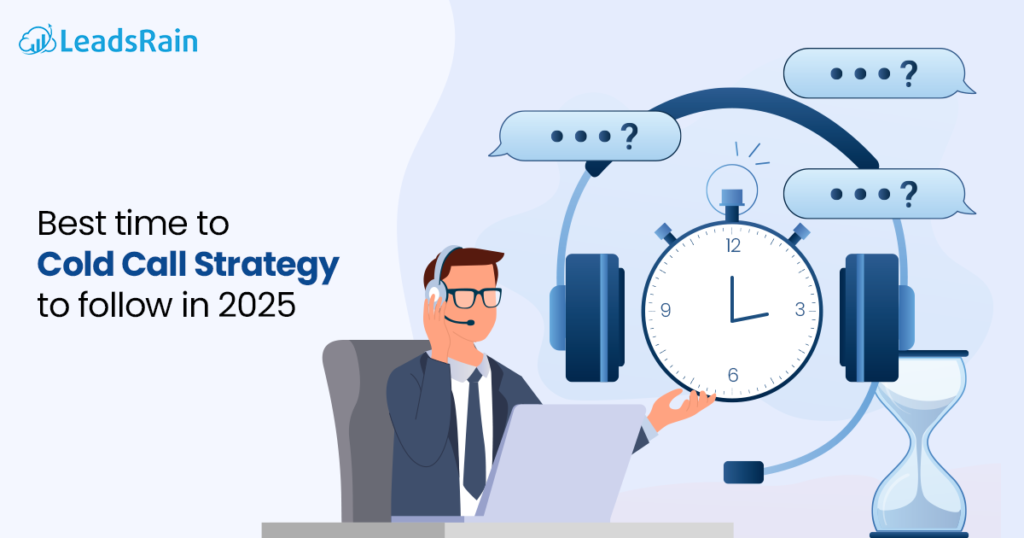Contrary to widespread perception, outbound sales are still prevalent, particularly in B2B. To get leads, many sales teams still use outbound sales strategies. Being a good outbound salesperson necessitates a great deal of professionalism and patience.
Unfortunately, a lot of experts in this industry commit simple errors that might get in the way of their success. Let’s examine the most common mistakes salespeople make in outbound sales.
How Outbound Can Sales Mistakes Kill Your Productivity?
Outbound sales mistakes can have a detrimental impact on your productivity, hampering your ability to generate leads and close deals effectively. One common mistake is inadequate research and understanding of the target audience. Without thoroughly understanding your potential customer’s pain points, preferences, and buying behavior, you risk wasting time and effort on unqualified leads, leading to low conversion rates and lost opportunities.
Additionally, poor communication skills can hinder your productivity. Failing to deliver a compelling and personalized sales pitch, actively listen to customer concerns, or address objections effectively can result in disengaged prospects and failed sales attempts. This not only wastes valuable time but also damages your reputation and credibility in the market. Lack of organization and failure to utilize CRM systems can lead to lost or forgotten leads, resulting in missed follow-ups and decreased efficiency.
10 Common Outbound Sales Mistakes
To avoid such productivity blunders, first, you must know the common outbound sales mistake and then try to avoid them from your outbound sales practice. Let’s look at some common mistakes people make in outbound sales.
1. Failing To Adjust To Changing Market Conditions
Consumer behavior and purchasing patterns change with the advancement of technology and society.
Salespeople must keep up with these developments by attentively observing sales industry trends in order to stay competitive in the modern corporate environment. Failure to do so could seriously impede an outbound campaign’s success.
The issue is that many salesmen fall behind on the most recent information, business trends, and technological developments. As information continues to spread on the internet, they are therefore obliged to rely on techniques that quickly become out of date. Make sure you’re current on industry news and technologies before making a cold call or sending a cold email.
2. Poor Sales Data And Outbound Targeting
Selling over the phone takes time. You need a strategy, an outreach procedure, messaging, and access to specific lists of prospects before you can even start a conversation. You risk contacting businesses or prospects who aren’t a good fit for your product when you commit the error of broad sales targeting.
It’s simple to waste time conversing with the wrong individuals, using erroneous contact information, or being irrelevant with false sales intelligence when data is bad or out of the current. An outbound sales process needs good data quality to be effective. If not, you run the risk of being bogged down in spreadsheets all the time trying to fix data.
3. Interacting with the Wrong Prospects
Not everyone is going to like your items. You probably have a certain market in mind if you rely on outbound sales to generate leads. Spending time talking to folks who won’t profit from your offer is the last thing you want to do.
You require an outbound sales approach that is focused on your target clientele. Make a persona for your ideal customer to start. Discover their interests, job title, and demographics.
It’s best if you can be as specific as possible.
This information will be useful when building up your marketing initiatives. It implies that you can develop advertisements and opening messaging utilizing terminology specific to your target audience. By doing this, you can be sure that the leads you receive are more qualified and eager to buy your goods.
Making sure you’re obtaining leads from the appropriate source will help increase your lead options. Discovering where your audience hangs out online can be done using the information you gathered about them. Visit these places to look for possible clients.
4. Failure to Stay on Prospect’s Top-of-Mind
Prospects are often always busy, which makes it challenging to get and keep their attention. There are countless explanations as to why a prospect would reject outbound outreach. Even though you were ghosted the first time, you shouldn’t give up after that. When you first engage with a prospect, the majority of them won’t be immediately prepared for an outbound sales interaction.
Unfortunately, a lot of reps make the error of conducting sales outreach over a short period of time with only a few touchpoints. Although this may save time, the likelihood of interacting with prospects is also reduced. You run the danger of missing out on potential possibilities with qualified prospects who merely ignore your initial outreach if you aren’t persistent in your sales prospecting.
Before a potential customer decides to contact a salesperson, it frequently takes many sales touches. This emphasizes the value of thorough follow-ups and multi-step outreach.
5. Repetitive Outbound Sales Messaging
Regular sales outreach to buyers might make it practically hard for them to react to every salesperson requesting a conversation. Salespeople from various businesses are continually contacting potential customers in an effort to earn their limited attention.
Prospects must learn to distinguish between salespeople who are worth their time and those who should be ignored in the face of overwhelming amounts of constant approach. Because they only have so much time to talk to salespeople, prospects frequently ignore the majority of the outreach they receive without ever engaging with it.
6. Not Monitoring Lead Progression
There’s a good probability that your sales team is simultaneously managing several leads. The issue with this is that it can be challenging to monitor the progress of every potential client you’re interacting with.
You must be able to monitor each lead’s progress through the sales process. Your team is on its own to keep track of things if there is no structure. Invest in a CRM program to find a solution to this issue.
An outbound sales tool known as a customer relationship management program offers a central location to keep your customer data. You can include the names, addresses, and any details of your leads that you think are relevant.
7. Choosing the Wrong Outbound Sales Dialer that Kills Efficiency
Using the wrong outbound sales dialer can be a significant blunder in outbound sales. A poorly chosen or inefficient dialer can lead to wasted time, decreased productivity, and missed sales opportunities. It may result in frequent dropped calls, slow call connections, and difficulty in managing customer data effectively.
A dialer that lacks advanced features such as call analytics, call recording, and automatic lead prioritization can hinder sales team performance and hinder the ability to identify and address customer needs efficiently. Moreover, if the dialer is not integrated with a customer relationship management (CRM) system, it can lead to disorganized data, missed follow-ups, and a disjointed customer experience.
Therefore, selecting the right outbound sales dialer is crucial for maximizing sales effectiveness, boosting productivity, and delivering a seamless customer journey.
8. Ignoring the Training and Development of the Sales Team
Any salesperson you engage ought to be capable of promoting your goods. There is a lot of sales expertise, which is the issue with this line of thinking. It’s challenging for one person to possess all knowledge.
You may enhance the sales process by making training investments in your sales force. There are constantly new ways to connect with potential customers. If your staff lacks the resources to learn about new developments, they won’t be able to benefit from them.
9. Not Using Online Information for Hyper-Personalization
These days, there is a ton of information available online. On social networking, e-commerce sites, and other websites where they have online accounts, they give it away. Are you utilizing this information to its fullest potential?
When individuals use the internet, there is a lot of noise. Every website tries to appeal to everyone and has something to sell. What will make you unique among your peers?
Personalizing your marketing is one of the finest strategies to achieve this. Additional data about your sales prospects should be able to be gathered and stored by your sales platform. With this information, you may develop a more tailored sales procedure that engages prospects better.
10. Not Leveraging the Email List
Do your salespeople need to provide a lot of product information to prospective customers? If your staff does this manually, they waste a lot of time. Utilizing an email list, you may automate most of the customer onboarding procedure. You create prepared email templates that deliver the information customers require rather than manually sending emails to people who are interested in your products.
First and foremost, you cannot expect a single list to apply to all situations. One of the most obvious features of email is the ability to segment your customer base. You can create various customer journeys on the same list by segmenting it. There’s a chance that not everyone on your list will be keen on anything you have to offer. They might be intrigued by one of your offerings.
You assign these clients tags that reflect their interests when you segment your list. Once you have a list that has been appropriately labeled, you can set up email automation to provide prospective clients with the precise data they require to decide whether or not to do business with your firm.
After everything is set up, your team may interact with clients about their issues and inquiries.
Pro-Tips to Avoid Mistakes in Outbound Sales
- Thoroughly research and understand your target audience.
- Create a personalized and compelling sales pitch.
- Practice active listening and build rapport with potential customers.
- Clearly articulate the value proposition and benefits of your product or service.
- Prioritize quality over quantity in your sales approach.
- Follow up promptly and consistently with leads.
- Utilize sales automation tools to streamline processes.
- Seek feedback and continuously refine your sales approach.
- Stay updated with industry trends and customer preferences.
- Maintain a positive attitude and persevere in the face of rejection.
Conclusion
For everyone concerned, outbound sales are difficult, awkward, and frequently uncomfortable. Due to unpleasant encounters in the past, prospects frequently develop an unfavorable opinion of salespeople, which makes it more difficult for today’s reps to be successful.
Simple mistakes can make life more difficult for everyone in sales. You should avoid them and stay away from mistakes that turn into blunders. You may stand out from the competition and provide reliable success with outbound selling by avoiding these 10 common outbound sales mistakes.
To know about Outbound sales and to get it streamlined, talk to our experts now or write back us at support@leadsrain.com and get ready to boost your outbound sales effectiveness.




